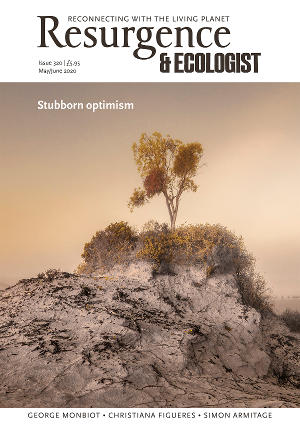Jedediah Purdy is a professor of law at Columbia Law School, and his new collection of essays is an urgent rallying cry for a planet and people in crisis. It is rich in ideas, shifting easily from radical miners’ unions to the rise of the far right, from Thoreau’s insights to the history of environmental regulation, but it is a work that remains consistently grounded in the land.
We are an “infrastructure species”, unable to exist apart from the exoskeleton we have created. This exoskeleton is built not only from the 30 trillion tonnes of material habitat that humans have fashioned, our roads and cities and cropland, but also from the intangible structures: the trade policies and economic theories and political organisations that all serve to dictate how we behave on our planet. This exoskeleton is “in a deep way unchosen”, but, tied to it, it can feel impossible to act in ways that do no harm to others or to the land. The possibility of altering such overarching infrastructure can seem hopeless. This is the resignation that is characteristic of our age: our inability to see beyond the way things are to how they could be different.
Yet this nihilism, which imagines that nothing can alter our current trajectory, is tantamount to sitting around and waiting for the world to end. Purdy believes in politics, and he believes that if we built this world, we can build a different one. He is excellent in showing how indivisible humanity is from the place we inhabit: it is the land that holds our history and where we live. Who owns that land and who is able to extract value from it determines how we relate to each other and to the planet. If we wish to avert a future that is destined to become ever more unjust and apocalyptic, first for the disenfranchised and ultimately for everyone, we must shape a world that allows for the flourishing of all, and for a deep reciprocity between people and the land. The choice, says Purdy, is “commonwealth or barbarism”.
It is a vision that feels utopian, but through invoking Woody Guthrie’s classic folk song in the book’s title, Purdy hints that such a vision has always lain at the heart of how Americans have thought about their nation. The country was founded on a “radical respect for the equal freedom of its insiders”, and the protection of vast swathes of the country in its national parks has been called “America’s best idea”. Yet such noble thoughts feel distant today, and besides, they have always favoured some at the expense of others: the equality at the heart of the Declaration of Independence was relevant only to the white and male population, and the national parks were developed by white supremacists who saw Indigenous peoples as an impediment to their concept of untamed Nature. Today, we have arrived at an ever-widening gap between rich and poor, with a world limping towards catastrophe. It is time to bring everyone and everything, equally, into the fold.
Purdy sees hope in the current groundswell of political activism, in the resurgence of environmental justice within mainstream environmentalism, and in the growing movement behind the Green New Deal. “We need extraordinary acts to serve the most common things,” he concludes. “It will seem less heroic, more ordinary, if it is the work of many hands, and that is the only way it will come true.”






